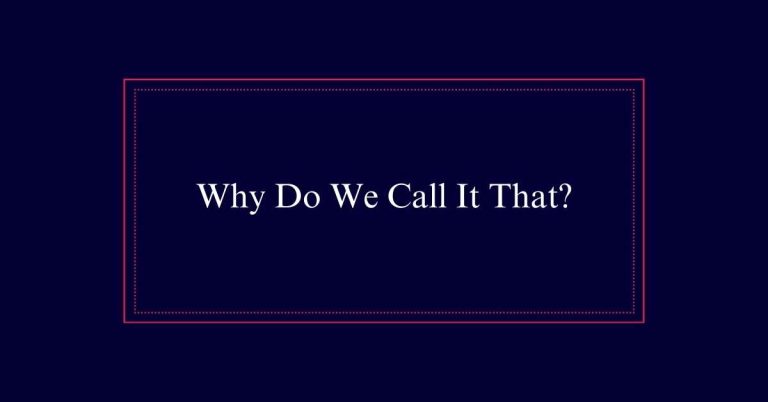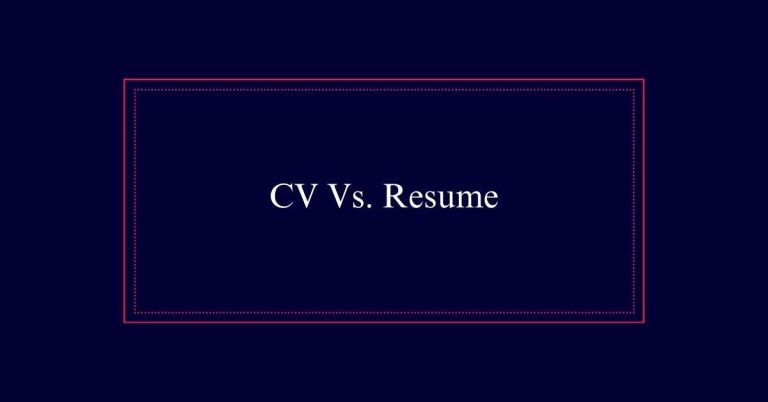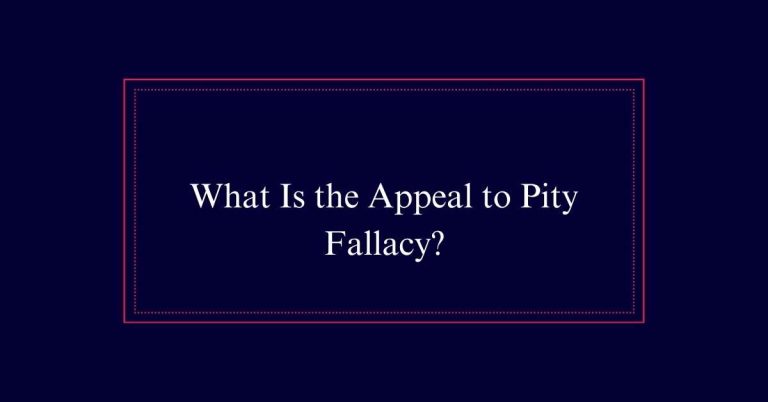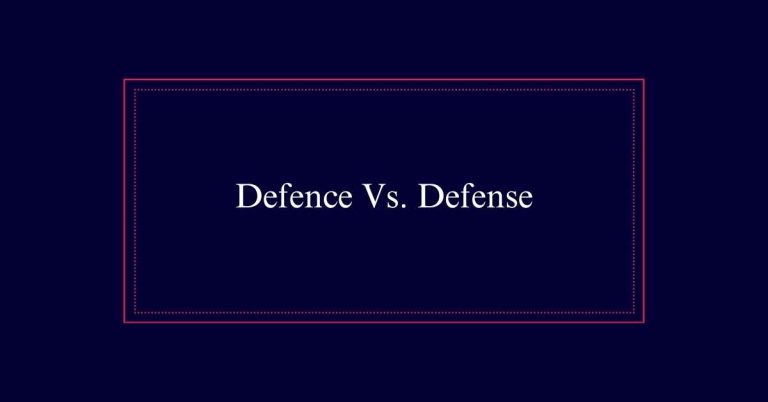Equivocation Fallacy
The equivocation fallacy occurs when a word or phrase is used in different senses within the same argument, leading to misleading conclusions. For example, ‘A feather is light. What is light cannot be dark. Hence, a feather cannot be dark.’ Here, ‘light’ is used to mean both ‘not heavy’ and ‘bright,’ causing confusion. Such fallacies undermine the credibility of an argument and result in flawed reasoning.
What Is Equivocation?
Equivocation is the logical fallacy of using a word or phrase in different senses within the same argument. It involves calling two different things by the same name, leading to misleading conclusions.
For instance, the word ‘bank’ can mean a financial institution or the side of a river. Using ‘bank’ in both senses within one argument causes confusion. This fallacy undermines the credibility of an argument and can result in flawed reasoning.
It is often used to obfuscate or deceive, making it harder to follow the true point being made. Equivocation is an informal fallacy, meaning it arises from how language is used rather than the structure of the argument itself.
How Equivocation Works
The mechanism of equivocation hinges on the deliberate use of ambiguous language to exploit different meanings of the same word. This ambiguity allows a person to switch between meanings, leading to misleading conclusions. Consider the following table that outlines how equivocation can function:
| Scenario | Word Used Ambiguously | Different Meanings Exploited |
|---|---|---|
| Legal Argument | “Right” | Legal entitlement vs. correct |
| Scientific Debate | “Theory” | Hypothesis vs. well-tested idea |
| Marketing Claim | “Natural” | Found in nature vs. not synthetic |
| Economic Discussion | “Value” | Monetary worth vs. moral worth |
Equivocation in Humor
Using equivocation in humor involves playing with ambiguous meanings to create comedic effect. Comedians often exploit the multiple meanings of words to craft jokes that surprise and amuse the audience.
For example, a classic pun might hinge on a word that has both a literal and a figurative meaning. Consider the joke, ‘Time flies like an arrow; fruit flies like a banana.’ The humor arises from the double meaning of ‘flies’ and ‘like.’
Bad Faith Arguments
Bad faith arguments often rely on equivocation to mislead or confuse the audience. These arguments use ambiguous language to exploit different meanings of a word or phrase. This strategy aims to deceive rather than to engage in honest discourse. Equivocation in bad faith arguments creates a facade of logical reasoning, masking the inherent flaws.
Below is a table illustrating how equivocation can be used in bad faith arguments:
| Term | Meaning A | Meaning B |
|---|---|---|
| “Bank” | Financial institution | River’s edge |
| “Light” | Not heavy | Illumination |
| “Right” | Morally correct | Direction (opposite of left) |
Obfuscation Strategy
In addition to bad faith arguments, equivocation is frequently employed as an obfuscation strategy to obscure the truth. This tactic involves using ambiguous language to create confusion and hide the real meaning.
By exploiting the multiple meanings of a word, the speaker can mislead the audience without appearing to lie outright. This strategy can be particularly effective in political discourse, legal arguments, and marketing.
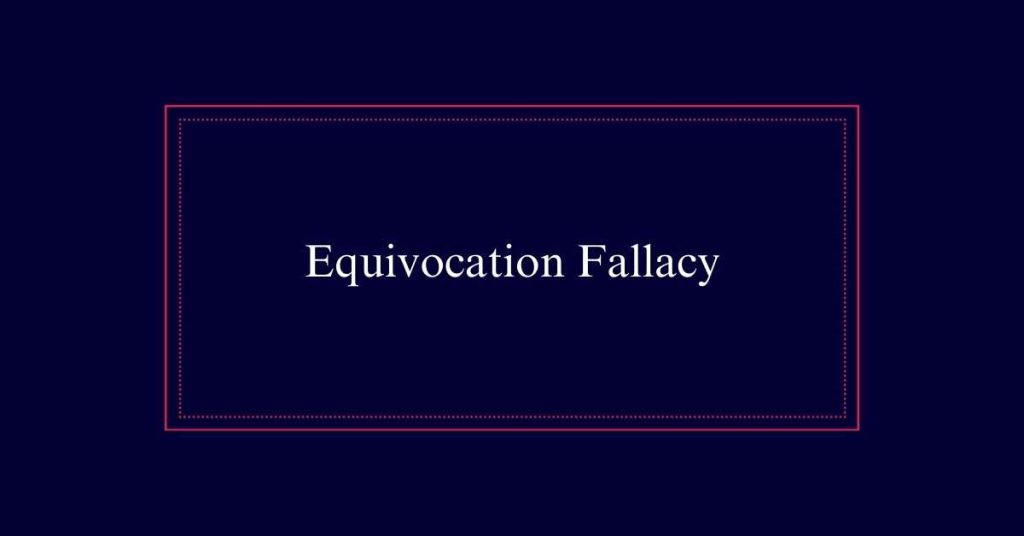
Confusion and Misunderstandings
Equivocation fallacy often leads to confusion and misunderstandings by exploiting ambiguous language. This misuse of words with multiple meanings can obscure the true intent of a statement.
For instance, using the word ‘light’ to mean both ‘not heavy’ and ‘illumination’ in an argument can mislead listeners. This ambiguity makes it difficult to follow the logic being presented.
Such misunderstandings can derail productive discussions and lead to incorrect conclusions. People might talk past each other, thinking they are agreeing or disagreeing when they are not.
Undermining Credibility
Using equivocation in an argument can greatly undermine the speaker’s credibility. When a speaker uses ambiguous language, it creates an impression of dishonesty or lack of depth in their understanding. Audiences may become skeptical of the speaker’s intent and question their expertise or reliability. This can erode trust and diminish the persuasive power of their argument.
Trust Issues:
Ambiguous statements lead to doubts about the speaker’s integrity.
Perceived Manipulation:
Listeners may feel manipulated if they detect intentional misleading.
Expertise Questioned:
Frequent use of equivocation can make the speaker appear uninformed or deceptive.
Misleading Comparisons
While undermining credibility can damage an argument, misleading comparisons also play a significant role in equivocation fallacies.
Misleading comparisons occur when two unlike things are presented as similar to support a flawed argument. This often involves using ambiguous language to draw parallels that don’t hold up under scrutiny.
For instance, saying ‘a car is like a bicycle because both have wheels’ ignores critical differences like size, function, and complexity.
Detecting Equivocation
Identifying equivocation in an argument requires careful analysis of the terms and their usage. This involves scrutinizing the context in which words are used and making sure that meanings remain consistent throughout the discussion.
Recognizing equivocation can be challenging but is crucial for transparent communication.
- Examine Context: Look at how the word is used in different parts of the argument to spot shifts in meaning.
- Clarify Definitions: Ask for precise definitions of key terms to guarantee all parties share the same understanding.
- Analyze Consistency: Check if the term’s meaning is consistent from the premises to the conclusion.

